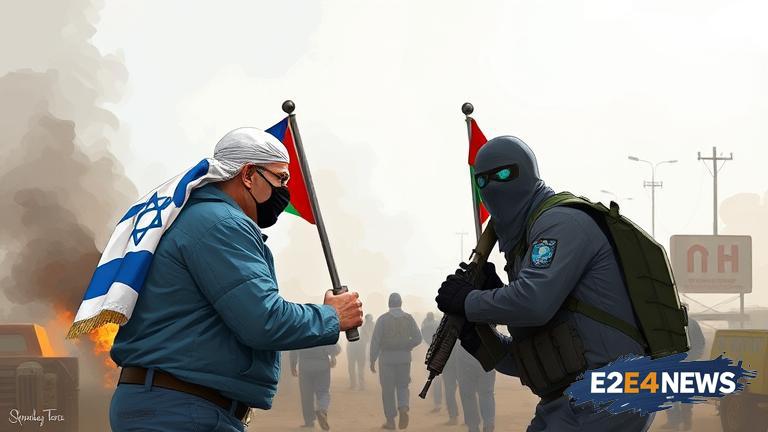The Israeli military has announced a temporary pause in fighting against Hamas in certain areas of Gaza, amidst growing concerns over a surge in hunger and humanitarian needs. The decision comes after weeks of intense conflict, which has resulted in significant damage to infrastructure and a rising number of civilian casualties. The pause in fighting is expected to allow for the delivery of humanitarian aid, including food and medical supplies, to affected areas. However, the Israeli military has stressed that the pause is temporary and that operations will resume if Hamas fails to adhere to the agreement. The conflict between Israel and Hamas has been ongoing for years, with periods of relative calm punctuated by outbreaks of violence. The latest escalation began several weeks ago, with both sides exchanging rocket fire and airstrikes. The Israeli military has stated that its operations are aimed at targeting Hamas militants and infrastructure, while Hamas has claimed that its actions are in response to Israeli aggression. Despite the temporary pause in fighting, concerns remain over the humanitarian situation in Gaza, where many residents are struggling to access basic necessities like food and water. The United Nations has warned of a potential humanitarian crisis, with many families forced to rely on aid to survive. The international community has called for a lasting ceasefire and a return to negotiations, but so far, a permanent agreement has proven elusive. The conflict has also had a significant impact on the regional economy, with trade and commerce disrupted by the fighting. The Israeli government has faced criticism for its handling of the conflict, with some accusing it of using disproportionate force. However, the government has maintained that its actions are necessary to protect Israeli citizens from Hamas attacks. The Palestinian Authority has also been criticized for its role in the conflict, with some accusing it of failing to do enough to prevent violence. The conflict has also had a significant impact on the lives of ordinary Palestinians, who have been caught in the middle of the fighting. Many have been forced to flee their homes, while others have been injured or killed in the crossfire. The international community has pledged to provide humanitarian aid to those affected, but the delivery of aid has been hindered by the ongoing fighting. The temporary pause in fighting is seen as a positive step, but many are skeptical about whether it will lead to a lasting ceasefire. The conflict between Israel and Hamas is complex and deeply entrenched, with both sides having competing claims and interests. A lasting resolution will require a comprehensive and negotiated settlement, which has proven difficult to achieve in the past. Despite the challenges, many are hopeful that the temporary pause in fighting will provide an opportunity for negotiations to resume and for a lasting ceasefire to be achieved. The international community will be watching closely to see if the pause in fighting holds and if it can be built upon to achieve a more lasting peace. In the meantime, the humanitarian situation in Gaza remains a pressing concern, with many families in need of urgent assistance. The delivery of humanitarian aid will be critical in the coming days and weeks, and the international community must work together to ensure that those in need receive the support they require.
